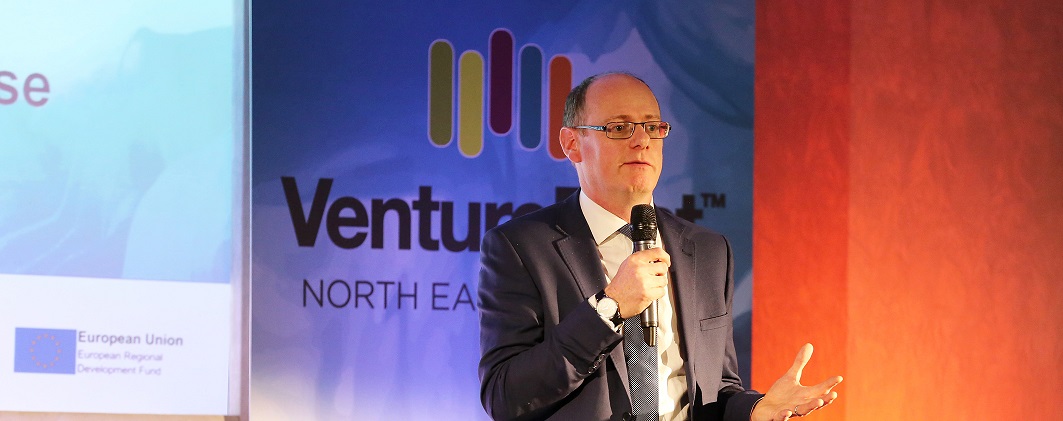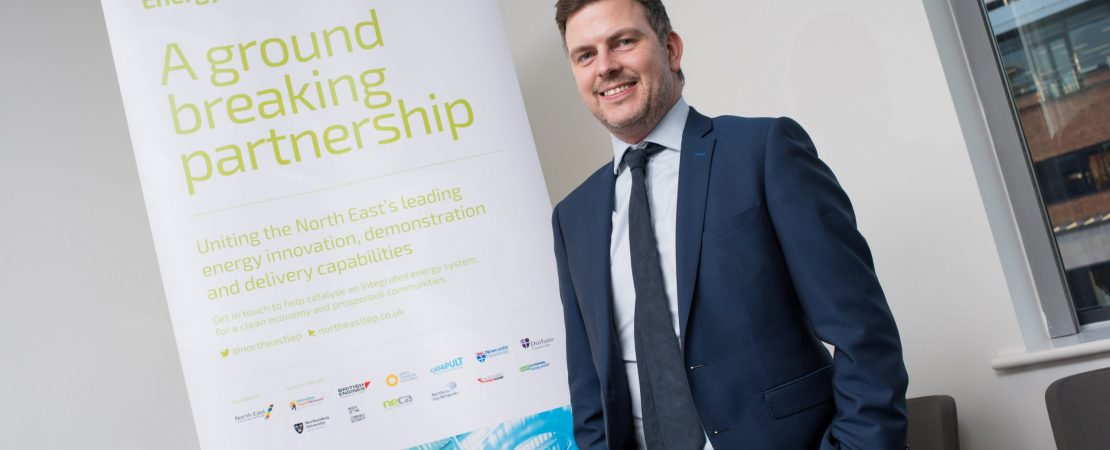As Vice-Chancellor of Newcastle University – as well as a LEP board member representing further education – Professor Chris Day believes universities are absolutely central to our regional and national recovery. But to achieve all they can, they need to work together, and combine vision with the right support.
The day I started in this job, the first question that people asked me was: “How can you be a local and global university at the same time?”
For me, that’s not a conflict. Those two roles are totally complimentary.
If you’re an ambitious university, you need to deliver research that advances humanity’s shared knowledge. That means it needs to be as good as you’ll find anywhere in the world.
You need to offer an education that will help students to thrive in established and emerging industries, wherever they want to go.
But you also want that research – and those skills – to benefit the people who live here, in the North East of England. You want those people to see the results of your breakthroughs, whether that’s better cancer treatments or innovative processes and technologies.
And, above all, you want to create opportunity, and raise aspirations. A child growing up in the North East should be able to watch these new landmarks and industries rise on the skyline, and say, “One day, I’ll be a part of that. And it’ll change my life”.
Achieving all this needs vision, and dedication. But it also requires collaboration, transparency, and – sometimes – a willingness to try things a little differently.
Our role in the region
Newcastle University was founded in 1834 as a medical school, to produce doctors for the North East. It then became an engineering college, training workers for mining and shipbuilding.
Today, we produce graduates capable of pursuing careers in industries all over the world. But we’ve always taken our role in the region seriously.
When COVID-19 first made its presence felt, cities needed a decisive and connected response. And universities like ours had a key place at that table.
Due to our close links with the City Council and the Local Enterprise Partnerships in the region, we were meeting with major players in the city, managing students and vaccinations, and letting our medical students graduate early to assist with treatment and care.
As we start to allow ourselves to think about recovery, our role is as important as ever. Universities will undoubtedly come under pressure to justify their impact, as the Government considers tough decisions about funding. But the truth is this:
At a time when we need it most, universities have the power to become a valuable driver of our economy. With the right support, and vision.
In many ways, the addition of impact to the Research Excellence Framework has focused the minds of university leaders and academics. We’ve acknowledged that we need to show the benefit we bring to society more clearly, and pursue research that has a direct benefit. But it’s also important that universities undertake research that simply increases knowledge, and do the speculative work that enables us to take greater leaps forward.
Quantum physicists didn’t do research so that we could all have phones in our pockets. But we have these devices today because of what they learned.
Universities are the only place that can do work like this. In the R&D departments of companies with shareholders, you can’t have a few people in the corner simply “trying things out”. But that sort of work is absolutely essential.
If you want an example of that relationship, look at Oxford University and AstraZeneca. Researchers developing, and AstraZeneca putting cash in. The result is vaccines that we can all use, and two institutions playing to their strengths.
At Newcastle University, we’re investing in initiatives that will benefit both the world, and the region. Our Newcastle Helix site is the embodiment of our data and ageing science expertise. It’s home to 65 innovative companies, and more than 2,600 jobs. But it’s also crucial to our plans to assist with the regeneration of the West End of the city.
The old Newcastle General Hospital site will soon transform into the Campus for Ageing and Vitality, which will become a leading site for new drugs and discoveries, as well as a test bed for how to improve treatment and services for our ageing population.
Collaboration is absolutely vital to this work. Up in Blyth, Britishvolt is setting up a £2.6bn battery gigaplant, providing 3,000 highly skilled jobs as well as 5,000 down the supply chain.
One of the reasons that site was selected was because our university has fantastic battery researchers, and that we’re also able to provide the skills and training. We’re also linking our researchers with existing regional industries, such as our work with Nissan on the sustainable automotive industry.
That’s what a university can do, when it has the freedom to think beyond its core teaching, and dream of something bigger and more transformative.
And what’s at risk, if we think too small, or too fearfully.
What can we do better?
Universities UK launched the “Getting Results” campaign this summer because it believes universities have an integral role in developing talent, and building prosperity.
Universities are places of learning, places of innovation, and places of opportunity. But as every industry attempts to rebound from the events of the last two years, we need to respond, and address areas where we can do better.
That means working together. It means lifting each other up. And it means being clearer about what we do, and how we can help others.
For example, COVID-19 has emphasised the disparities in wealth and outcomes across the country. If you mapped areas of child poverty in 1850 across the UK with areas worst hit by COVID-19, they’d be almost identical.
So how do universities and their partners address these differences, and ensure more inclusive growth? The number of students from deprived backgrounds at our university has risen from 7% in 2016 to around 20%. But how do we continue this work, and help others across the country to do the same?
We need to work with Further Education partners to up-skill our current and future workforce for the roles they’ll take in future. And we’re talking about the 40 year olds, as well as the 20 year olds.
We still hear from businesses that don’t know where to go to access university R&D expertise. One of the aims of our campaign is to provide a website where a company can look up the lead contacts at Britain’s universities. We want them to be able to find the people with the expertise they want, form partnerships, and work together on valuable solutions.
Universities the length and breadth of the UK need to raise a flag, and show employers and policymakers that they can be a key player in the economic and social outcomes of our towns and cities, and the country as a whole.
We’re already a big part of our community. Let’s also be a big part of our recovery.
Professor Chris Day is the chair of the Universities UK group behind the “Getting Results” campaign. He is also vice chancellor and president of Newcastle University, as well as a member of the North East Local Enterprise Partnership board representing the higher education sector.





